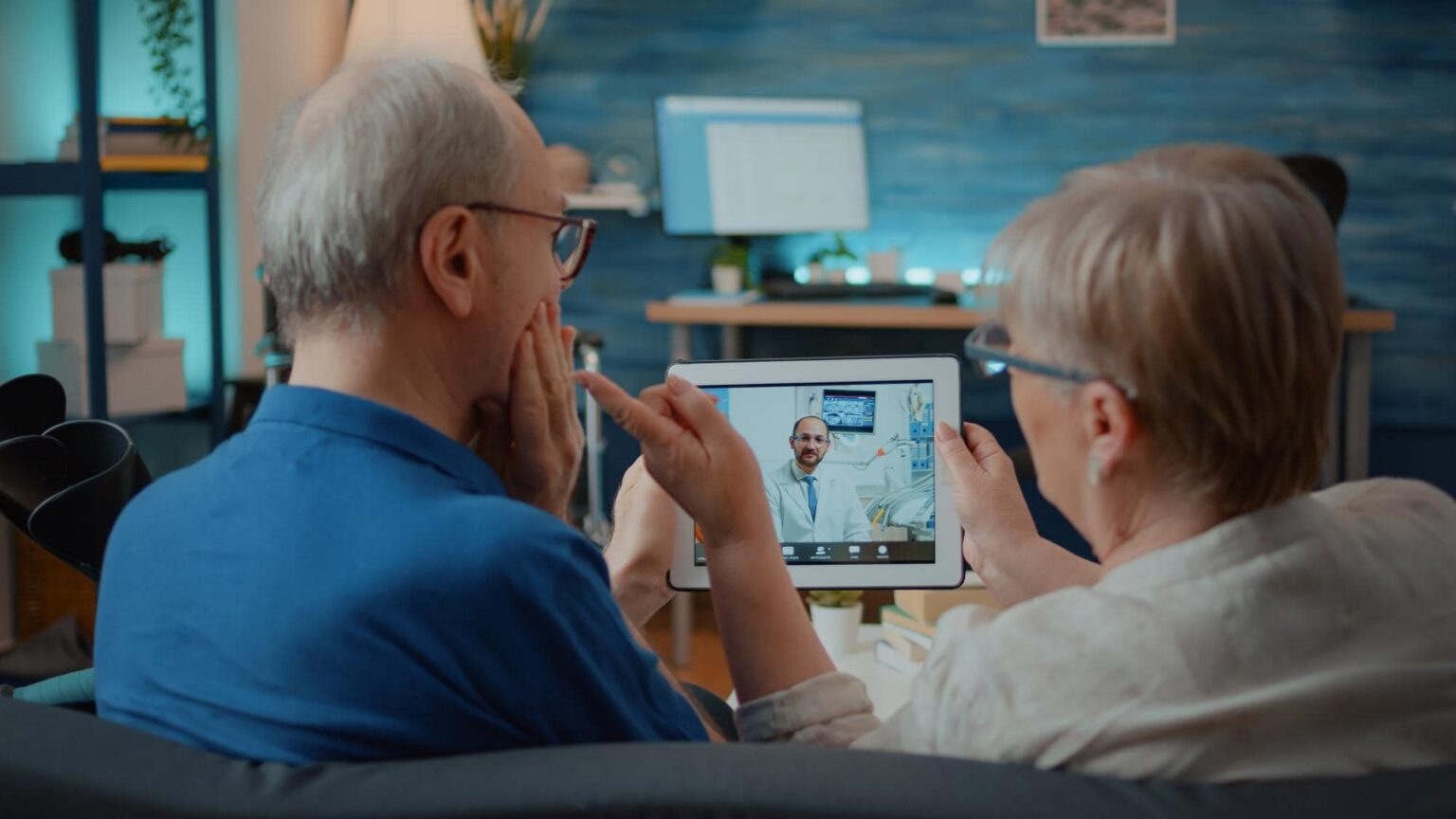Telemedicine plays a significant role in supporting independent living and improving healthcare for aging populations. Here’s how telemedicine benefits older adults and enhances elderly care:
Remote Consultations: Telemedicine enables older adults to receive medical consultations without leaving their homes. This is particularly beneficial for individuals with mobility issues or limited access to transportation. Remote consultations allow healthcare providers to assess symptoms, provide medical advice, and prescribe medications, reducing the need for frequent in-person visits.
Chronic Disease Management: Many older adults have chronic health conditions that require ongoing management. Telemedicine offers convenient and regular monitoring of vital signs, medication management, and lifestyle interventions. Remote patient monitoring devices, such as blood pressure monitors or glucose meters, can transmit data to healthcare providers, allowing them to track health trends and intervene promptly if needed.
Medication Management: Telemedicine platforms can help older adults manage their medications effectively. Healthcare providers can review medication regimens, provide medication reminders, and conduct virtual medication reconciliation. This reduces the risk of medication errors and enhances medication adherence, which is critical for managing chronic conditions and preventing adverse drug events.
Fall Prevention and Home Safety: Telemedicine can be utilized to assess home environments and provide recommendations for fall prevention and home safety measures. Virtual assessments by healthcare providers or occupational therapists can identify potential hazards, suggest modifications, and offer guidance on maintaining a safe living environment. This helps older adults reduce the risk of falls and improve their overall safety at home.
Mental Health Support: Older adults often face mental health challenges such as depression, anxiety, or loneliness. Telepsychiatry and teletherapy services enable virtual counseling sessions, providing emotional support and therapeutic interventions. These services can be accessed from the comfort of home, reducing the barriers associated with seeking mental health care for older adults.
Care Coordination and Remote Monitoring: Telemedicine facilitates care coordination among multiple healthcare providers involved in an older adult’s care. Through secure messaging and video consultations, primary care physicians, specialists, and caregivers can collaborate, share information, and coordinate treatment plans. Remote monitoring of health parameters allows for proactive interventions and reduces the need for hospitalizations or emergency room visits.
Health Education and Self-Management: Telemedicine platforms offer educational resources and self-management tools tailored to older adults. These resources cover topics such as nutrition, exercise, medication adherence, and disease management. Interactive features, including video tutorials or virtual classes, help older adults enhance their health literacy, improve self-care skills, and actively participate in managing their health.
Caregiver Support and Education: Telemedicine provides support and education to family caregivers who play a vital role in caring for older adults. Virtual consultations with healthcare providers can involve caregivers, addressing their concerns, providing guidance on care techniques, and offering emotional support. Telemedicine platforms can also provide caregiver-specific resources, training materials, and access to support groups.
Palliative and End-of-Life Care: Telemedicine enables enhanced access to palliative and end-of-life care services for older adults with serious illnesses. Virtual consultations with palliative care specialists, advance care planning discussions, and emotional support can be provided through telemedicine platforms. This helps older adults receive comprehensive care and support in the comfort of their homes, respecting their wishes and improving their quality of life.
Telemedicine plays a vital role in supporting the aging population’s healthcare needs, promoting independence, and improving the overall well-being of older adults. It offers a patient-centered approach, reduces barriers to care, and enhances the coordination of healthcare services, resulting in better health outcomes and an improved quality of life for older adults and their caregivers.



